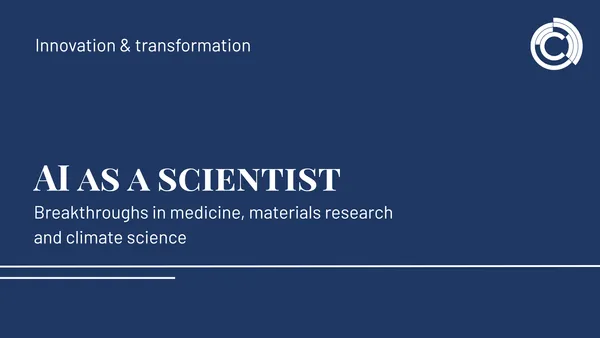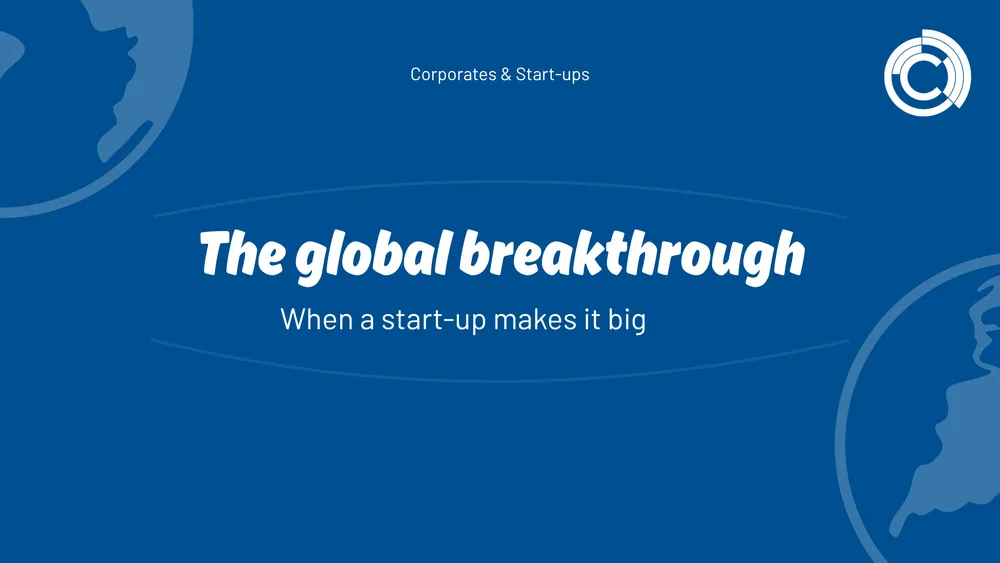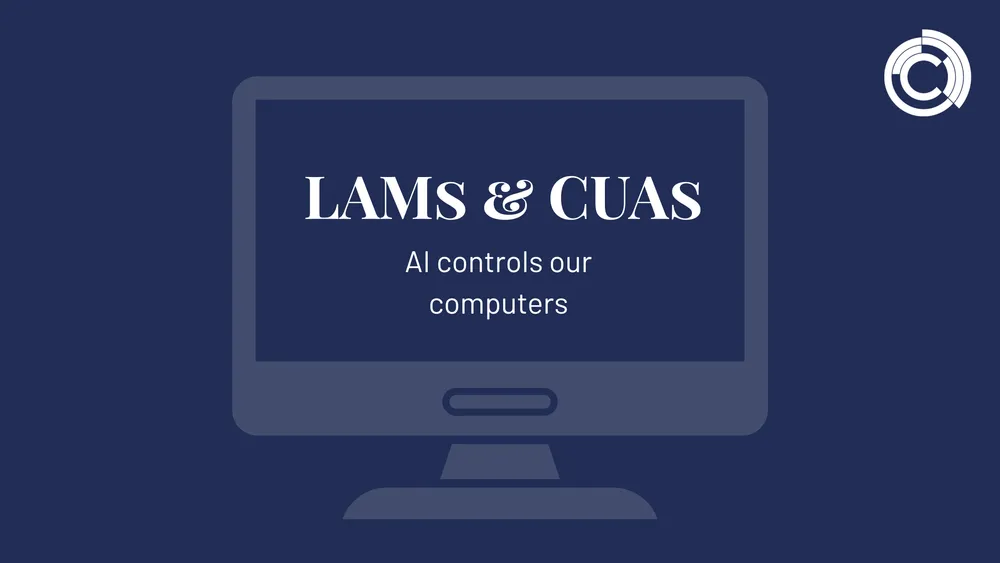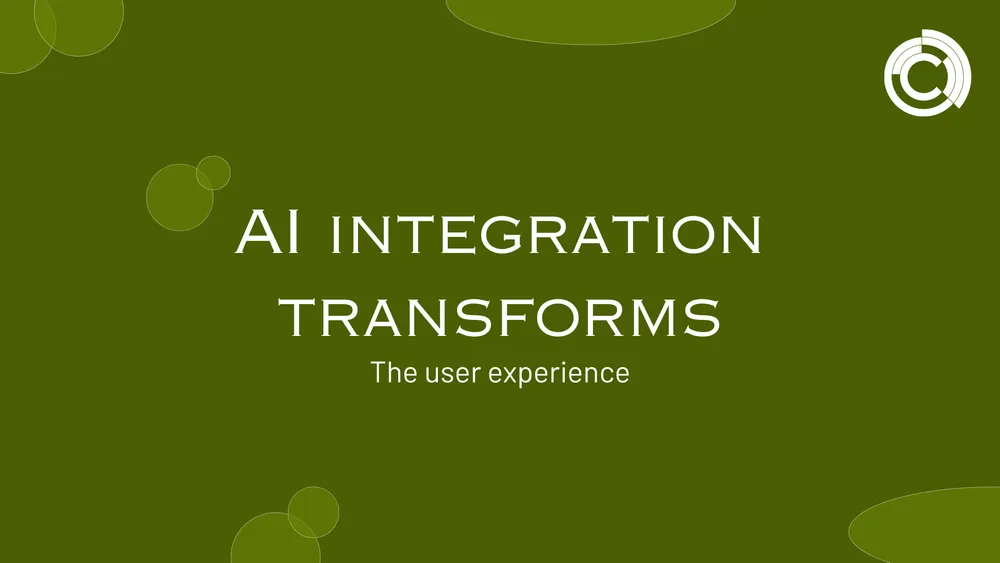
CCNet
Sep 15, 2025 • 2 min read

AI as a scientist – breakthroughs in research and medicine
Artificial intelligence has long been more than just a tool for process automation. By 2025, it will increasingly become a driver of scientific innovation. Whether in medicine, materials research, or climate science, recent developments show that AI not only analyzes data but also enables groundbreaking advances as a kind of “co-scientist.” This opens up enormous opportunities for companies and institutions – and at the same time raises new questions.
Medicine: From diagnoses to therapies
AI is changing the rules of the game in medicine. Systems that analyze complex protein structures or simulate drug interactions are significantly accelerating the development of new therapies. Initial applications in oncology show that personalized cancer therapies can be developed and adapted much more quickly with AI.
Progress is also visible in diagnostics: AI-supported systems detect abnormalities in X-ray or mammography images with greater accuracy than doctors. Studies show improvements of over 20% in the hit rate. This means earlier diagnoses, better treatment outcomes – and potentially lower costs in the healthcare system.
Research: More speed, less creativity?
AI has a double-edged effect on science. On the one hand, it massively accelerates processes: researchers who use AI publish faster and are cited more often. In materials research, AI-supported analyses have identified hundreds of thousands of new materials – with relevance for batteries, solar cells, and superconducting technologies.
On the other hand, experts warn that AI could lead to a narrowing of research. When algorithms reinforce known patterns, creativity risks falling by the wayside. Groundbreaking, unconventional ideas could become rarer. For decision-makers in research institutions and companies, this means that striking a balance between efficiency and creativity is crucial.
Climate change and space research
AI is also increasingly becoming a game changer in climate protection. High-resolution satellite data combined with machine learning significantly improves the prediction of extreme weather events. This not only facilitates the adaptation of energy systems, but also the planning of infrastructure projects.
An example from space travel: AI-supported processes are capable of extracting oxygen from extraterrestrial materials – a technology that makes future Mars missions seem more realistic. For industry, this opens up completely new business areas in the long term.
Opportunities for companies
For management, the question arises: How can these scientific breakthroughs be translated into business advantages?
• Pharmaceuticals & healthcare: Faster drug development and improved diagnostics.
• Energy & materials: New materials for sustainable technologies.
• Insurance & Infrastructure: Better predictions and risk models.
Companies that enter into partnerships with research institutions or launch their own AI-based R&D initiatives today will secure competitive advantages for decades to come.
Conclusion: AI as a new research partner
The idea that AI will one day generate new scientific findings independently is no longer a utopian dream. The first systems are already capable of analyzing literature, developing hypotheses, and proposing experiments. For the economy, this means that research and development will become faster, cheaper, and more targeted – while still leaving room for creativity and critical thinking.
AI is not just a tool of science – it is becoming part of the scientific process itself. And that is a paradigm shift that companies, universities, and investors alike should prepare for.
FAQ about blog
How is AI changing medical research?
It speeds up diagnoses and therapies, for example in oncology.
What are the risks in science?
AI could suppress creative research ideas if only known patterns are reinforced.
Where does AI have a particular impact on climate protection?
In predicting extreme weather events and planning energy systems.
What opportunities arise for companies?
Faster drug development, new materials, and improved risk models.
Can AI develop hypotheses independently?
The first systems are already capable of evaluating literature and making suggestions.


